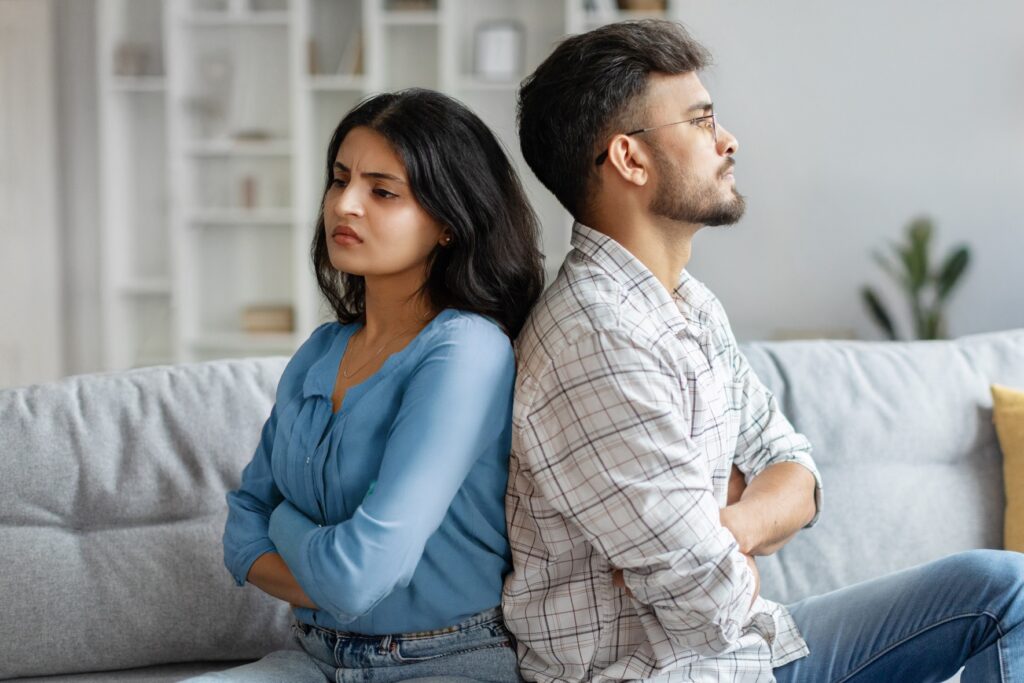How to Recover After a Breakup

Breakups are difficult.
It’s important to remember that breakups are a shared human experience. It’s rare for a relationship to end without a mix of challenging emotions, such as guilt, ambivalence, fear, sadness, and anger, being present. These feelings are part of the process, even if you were the one to end the relationship.
These emotions are often heightened if you are caught off guard. When we are going through a difficult breakup, we want the hurt to stop. We look for explanations for what transpired, proof of what went wrong, or indications that things will improve. We motivate ourselves for closure. We long for a resolution!
What Is Closure?
Contrary to popular belief, closure is not about avoiding the pain of a breakup. It’s about acknowledging and accepting that the relationship is over, which can be a huge relief. It’s a sign that we can heal and find happiness again, even if a sense of loss may still linger.
People may have different experiences with closure; in some respects, it is simpler to describe what closure is not than what it is. When we are at peace, thoughts of the relationship or breakup do not consume us. We’re not replaying the past, wondering what we could have said or done differently, wondering what the other person is up to, trying to get in touch with our ex-partners to ask them questions, etc. Neither the relationship nor the breakup occupies more space in our minds than any previous relationship or breakup.
Remember, closure doesn’t mean you have to rush into a new relationship. It’s about accepting that the past is behind you and allowing yourself to be alone for a while, without the expectation of reconciliation. But it also means acknowledging that you will love again, and that’s a beautiful thing.
We can learn more about what we need in a future relationship, move closer to finding the right person, and, with closure, get over the emotional pain of the broken relationship.
Bringing Closure to a Relationship
Since we can’t predict how the other person will feel or handle the breakup, it can be challenging to give them closure. They might still look for explanations, blame themselves or you, or maintain optimism. Regardless of the cause, it is beneficial for all parties involved to attempt to provide some closure during a breakup.
How to Achieve Closure After a Breakup
Make it clear that the relationship is over for good. Do not try to mitigate the situation by introducing ad hoc timelines that leave room for a future reconciliation.
Understand the split, but do not assign blame. When partners are blamed, they reflect on their actions and what they could have done differently. Placing the blame on yourself may give the impression that you or the relationship can be “fixed,” which may lead to the possibility of a future reconciliation. Instead of placing blame, be explicit that you are not a good fit for one another and that it will not work out.
Never offer or request to stay friends. This is unfair to both of you, especially if you weren’t friends before the relationship. It’s one thing if you happen to cross paths again and decide to become friends, but it’s essential to cut off communication right away after a breakup. This also applies to social media following.
Why Closure is Difficult
Relationships don’t always provide us with enough closure, so we frequently have to find it ourselves. To accomplish this, it is essential to be explicit about the meaning of the breakup. We don’t need to understand, agree with, or accept the reasons behind the breakup to find closure.
All we need to do is genuinely realise, comprehend, and come to terms with the fact that the relationship is forever gone and put it behind us. When trying to find closure for ourselves, leaving the relationship behind is frequently where we struggle. We keep ourselves from finding closure when we become preoccupied with solving problems, repeating specifics, or thinking that we will only find closure once we are satisfied with the breakup. These ideas keep us stuck and the relationship fresh in our minds rather than relegated to the past.
Ways to Feeling Better After Breakup
- Break off contact with the ex; don’t stay friends. Don’t get together for anything. Avoid contacting people to ask questions or seek answers. Unfollow on social media.
- Make time for activities you enjoy: schedule get-togethers with friends, learn a new pastime or skill and discover new TV series to watch.
- It’s okay to feel awful after a breakup. Instead of fighting these feelings, we must acknowledge that breakups are difficult and allow ourselves the space to grieve. This is a normal part of the healing process; working through these emotions is okay.
- Make your house as comfortable as you can. Treat your house as a haven since you might spend more time there first. Remove any reminders of your ex and replace them with little things that bring you joy and self-worth.
- Seek support. Contact your loved ones or a relationship counsellor when you need to express your emotions. Ask them to hold you responsible for self-destructive behaviours that delay closure, such as ruminating, obsessing, looking for answers, contacting your ex, etc. Seeking professional support from a relationship counsellor is also an excellent way. Now, you can talk with a therapist online from the comfort of your home.
- Think, but don’t get caught up in it. Consider the things that went well and the things that didn’t in your relationship. For the next relationship, take note of those things.
- Remind yourself that this wasn’t the right person for you, which is why the relationship ended. You can find a relationship that suits your needs by ending the current one.
Click www.hopetrustindia.com for an instant online appointment with a therapist. Reclaim your happiness!